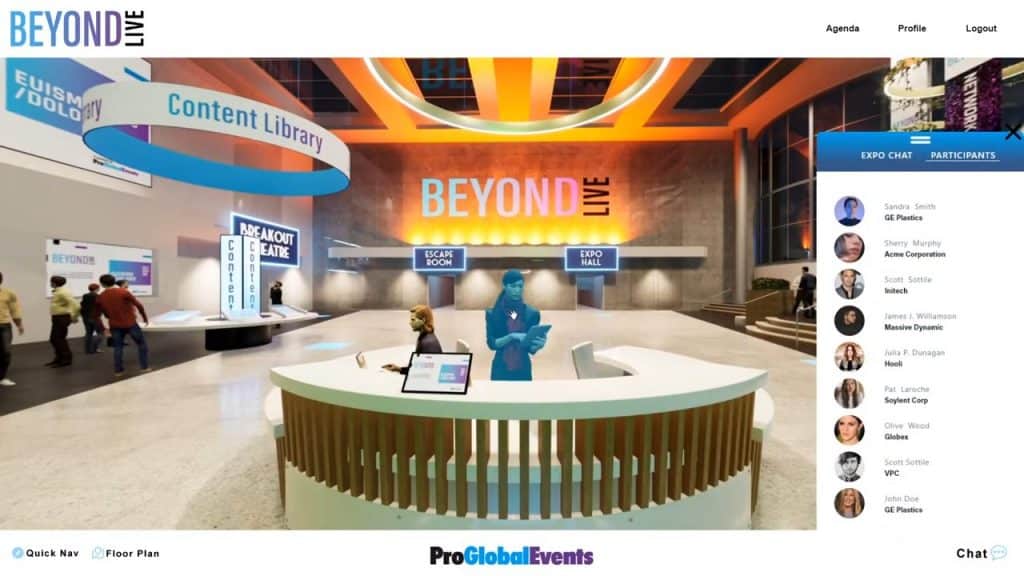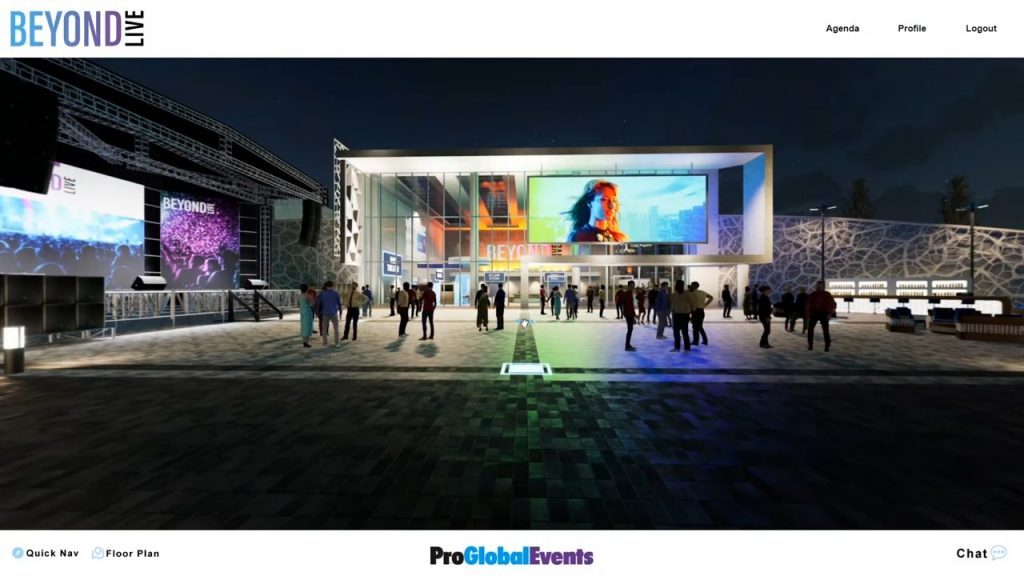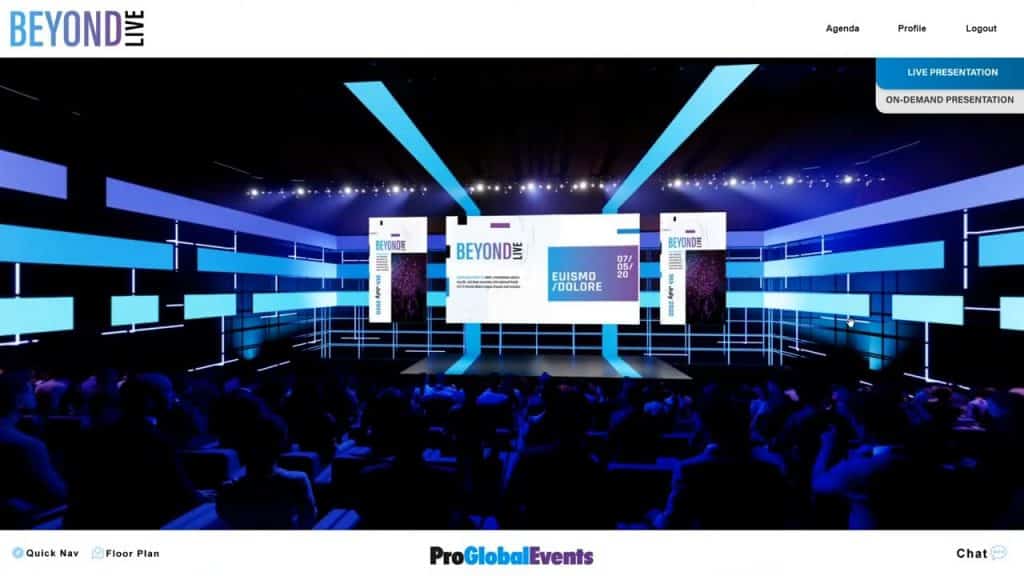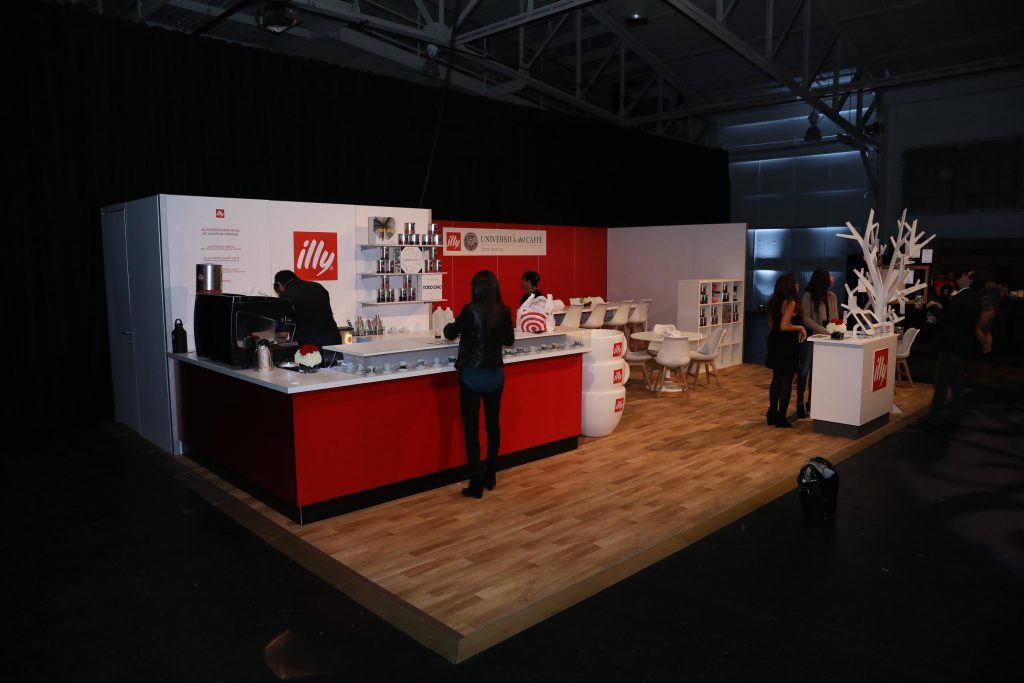Many of 2020’s industry events, both big and small, were canceled. Others were postponed. Some took an entirely new direction and went online. For instance, Open Source 101 hosted 1,000 attendees in April after shifting its Austin, TX event location to a virtual space. Salesforce World Tour Sydney hosted online-only in March, and the Microsoft Build 2020 went digital-only in May.
While small virtual events such as webinars and livestreams are common, the events industry is treading new ground when it comes to holding large events entirely online. As with anything else, online events have plenty of pros and cons, meaning it’s important to think carefully about your goals before making the switch. Weigh the virtual events pros and cons, however, and you’ll likely find that the balance is in favor of going online. There’s a lot to be gained, and thanks to the less costly nature of virtual events, less to lose.
Cons of Virtual Events
The “Wow” Factor Can Be Hard to Replicate
People go to industry events for a range of reasons—to make new contacts, close sales, learn. For many people, another part of it is the excitement of seeing what’s new and what’s making a splash in their industry. It’s the wow factor of a new product that everyone’s talking about or an amazing new exhibit feature that’s on everyone’s must-see list. Online events can sometimes lack that sense of wonder. There’s a difference between seeing LG Global’s video wall in person at CES 2019 and seeing it on YouTube.
But it’s not all bad. There’s a flip side, thanks to virtual technology—and the chance to turn this con into a pro.
No Face-to-Face Interactions
One of the biggest advantages of live industry events isn’t the content of those events but the simple human interactions. And there’s currently no technology in the virtual world that can entirely take its place. At live events, networking is often partly planned, but much of it is organic. Part of the fun of the event is walking the exhibit halls, seeing who you bump into and catching up with friends you only see at events.
You can make Zoom conferences, chat rooms, and other digital replacements available at your event, but these stand-ins won’t measure up for some attendees.
It’s not all bad news, however. While the experience of meeting and/or chatting with someone online is qualitatively different than doing it in person, what stands in the way of most people accepting it is just that it’s new! This means there’s the potential for the virtual interpersonal experience to improve. As people become more used to this way of interacting, the “newness” will wear off, helping it feel more familiar and more satisfying.
No After-Hours Networking Opportunities
Sometimes, the most effective networking is done out-of-session, at afterhours social events. These parties and get-togethers are usually popular and well-attended at in-person events. Everyone gets a chance to let off some steam after long days, and both friendships and business relationships can be made and strengthened.
How can a virtual event mimic the atmosphere of happy hour at a local bar? It’s tough. There are options, though, for creating fun opportunities for people to bond. Escape rooms, for instance, can bring people together online.

Harder to Hold Attendees’ Attention
Another important advantage of a live event with a dedicated event space is that once people are in that space, they’re focused on the event. They’re watching presentations, visiting exhibits, networking with other attendees. There are no other stimuli pulling their focus away, so their attention is yours.
On the other hand, if people are attending a virtual event from home, they might have other things competing for their attention. Whether it’s childcare, laundry, or a knock at the door, anyone who’s attending at home will have moments where they need to step away. It can, therefore, be challenging for event hosts to provide content that keeps people focused. That’s not necessarily the fault of either the hosts or the people who are actually providing content. It’s just a fact of life that sometimes it gets in the way.
Another potential con is just that it’s hard to get people to commit to sitting in front of their computer screen for long periods of time. Most people will naturally want to take breaks every so often. Online content needs to be designed to accommodate natural attention spans. It also needs to offer enough interesting content to make sure people come back after taking breaks. This can be an issue for everyone involved in running an event—the hosts, sponsors, and exhibitors. All have some role to play in providing content, so it’s something that needs to be considered on both a micro and a macro level.
The Pros of Virtual Events
There are lots of reasons people love virtual events and find value in attending them. And there are big benefits for event hosts too.
Easy Information Dissemination
Whether it’s before, during, or after a physical event, getting information to the people who need to see it can be difficult. In particular, at busy events it’s easy for people to miss key speakers or presentations, or for important sponsor booths to get less traffic than expected. The bigger the event, the more information there is to circulate, and the harder it is to put the right info in front of the right people.
Put that event online, and suddenly it becomes much easier to make sure that every attendee gets the information that’s most relevant to their interests. By using registration information to categorize and segment your attendee list, you can send targeted information to attendees via email and your event website. You can also serve sponsor messaging to every website user to ensure that info is seen multiple times by each attendee. Using website analytics, you can also track how attendees respond to the information—even in real time. That’s something you can’t easily do at an in-person event!

Massive Data-Gathering and Analytics Potential
A virtual event doesn’t just make it easier to provide information, it also makes it easier to get information. Online, you can track attendees with ease, by providing unique identifiers that tie each attendee to their login and registration info. That gives you some powerful data collection and analytic opportunities, since you can then track how people interact with the event.
No Budget-Busting Show-Running Costs
For event hosts, one of the hardest aspects of running the show is balancing its expenses, value, and cost. A big, exciting event needs a big venue and plenty of vendors. And the higher the cost of the event, the more it costs to attend. To justify the cost, you need to provide plenty of value, but adding value costs money.
An online event has comparably less of those budget-busting expenses. There’s no large food and beverage budget nor hotel and travel expenses, just to name a few differences. This typically makes the event budget lower, meaning potentially significant savings from converting a physical event into an online one.
Scheduling Issues—Avoided
At busy events, one of the hardest things for attendees is juggling their schedule. Fitting in speakers and workshops around networking meetings and visiting exhibits can put a lot of pressure on people who want to do as much as possible in a scant few days. For event hosts, creating a schedule that facilitates high attendance levels can be its own logistical nightmare.
A well-designed virtual event renders all of this irrelevant. If everything is online, attendees can see and do all they want. They missed the start time for a speaker livestream? No problem—they can locate it from the speaker list and watch a replay any time. With this approach to content design, attendees will find it much easier to attend presentations they want to see live, such as interactive workshops and Q&A sessions.
Reduced Barriers to Attendance—or None at All
Not everyone who wants to attend a live event can do so. There are several barriers that may prevent someone from attending, like:
- Cost
- Location
- Accessibility
These factors can all contribute to lower attendance numbers.
With an online event, these barriers come down, making virtual events highly beneficial for inclusivity. Putting an event online may open it up to people who’d never have thought of attending in person. And with those new exhibitors and attendees come new ideas, viewpoints, and innovations. This makes it a win not just for your event’s attendance figures, but for the industry as a whole.
This may even bring extra benefits later on. Attract new attendees to a virtual event, and some of them will be motivated to attend your live or hybrid events in the future.
Bringing the “Wow” Factor
The lack of “wow” can be an issue with virtual events, just because seeing something with your own eyes is almost always more impressive than experiencing it second-hand. But by moving an event online, exhibitors do have the chance to replicate the “wow” in a different way, using virtual reality technology. An exhibitor can’t build an amazing LED video wall, but they can design a virtual experience that people at home can take part in if they have the right equipment. Provide the right online infrastructure, and it’s not hard for you and your exhibitors to make the event one that people will remember.

How About a Hybrid Event That Can Do It All?
There are plenty of online events pros and cons to consider when thinking about what form an event should take. If you’re not convinced that an online-only event is the way to go, consider a hybrid event.
A hybrid event includes elements of both live and virtual events. This means you can reap the advantages of both and avoid the cons that might detract from an online-only event. Many big events already do something akin to a hybrid event, by providing livestreams and digital replays of key speakers and presentations. A true hybrid event is more intentional, with high-quality content that’s designed specifically for online interaction. With the right approach, going hybrid could take your live event to the next level.
Not Sure About How a Virtual Event Can Benefit Your Organization?
Whether it’s a completely new event, or a live event that you want to move online, the virtual event space holds plenty of promise. The balance of virtual events pros and cons means the potential benefits of taking your event online are huge. Learn more about the potential for virtual events and see a demo here.









